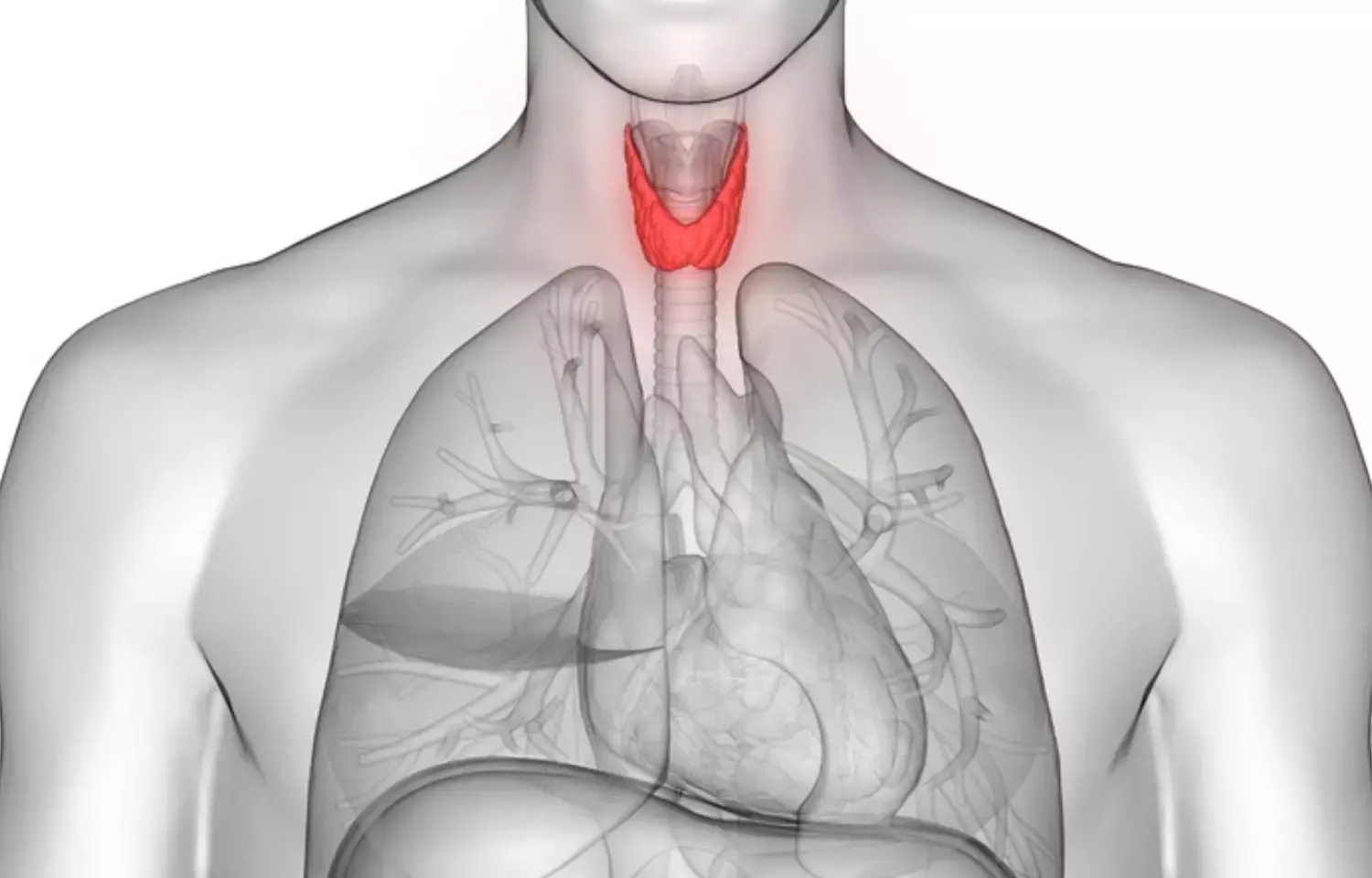- Home
- Medical news & Guidelines
- Anesthesiology
- Cardiology and CTVS
- Critical Care
- Dentistry
- Dermatology
- Diabetes and Endocrinology
- ENT
- Gastroenterology
- Medicine
- Nephrology
- Neurology
- Obstretics-Gynaecology
- Oncology
- Ophthalmology
- Orthopaedics
- Pediatrics-Neonatology
- Psychiatry
- Pulmonology
- Radiology
- Surgery
- Urology
- Laboratory Medicine
- Diet
- Nursing
- Paramedical
- Physiotherapy
- Health news
- Fact Check
- Bone Health Fact Check
- Brain Health Fact Check
- Cancer Related Fact Check
- Child Care Fact Check
- Dental and oral health fact check
- Diabetes and metabolic health fact check
- Diet and Nutrition Fact Check
- Eye and ENT Care Fact Check
- Fitness fact check
- Gut health fact check
- Heart health fact check
- Kidney health fact check
- Medical education fact check
- Men's health fact check
- Respiratory fact check
- Skin and hair care fact check
- Vaccine and Immunization fact check
- Women's health fact check
- AYUSH
- State News
- Andaman and Nicobar Islands
- Andhra Pradesh
- Arunachal Pradesh
- Assam
- Bihar
- Chandigarh
- Chattisgarh
- Dadra and Nagar Haveli
- Daman and Diu
- Delhi
- Goa
- Gujarat
- Haryana
- Himachal Pradesh
- Jammu & Kashmir
- Jharkhand
- Karnataka
- Kerala
- Ladakh
- Lakshadweep
- Madhya Pradesh
- Maharashtra
- Manipur
- Meghalaya
- Mizoram
- Nagaland
- Odisha
- Puducherry
- Punjab
- Rajasthan
- Sikkim
- Tamil Nadu
- Telangana
- Tripura
- Uttar Pradesh
- Uttrakhand
- West Bengal
- Medical Education
- Industry
High dose of steroids in severe COVID-19 tied to Thyroid dysfunction: PGIMER Study

Specialists at the department of endocrinology, PGIMER, have found that patients with acute Covid-19 infection get more frequent and severe thyroid hormonal imbalances as a result of steroid administration. Therefore they have suggested that high steroid dose should not be given to Covid 19 patients without supervision and indiscriminately as it may cause endocrine dysfunction.
The hospitals should provide low cortisol steroids instead of high dosages of steroids to patients with severe Covid symptoms patients.
The findings of the study have been published in the frontiers of endocrinology journal.
There is hardly any concrete evidence regarding the dysfunction of the endocrine system as well as the association of this dysfunction with the severity of disease in patients with COVID-19.
In the study the researchers included patients admitted at PGIMER Chandigarh and categorized them on the basis of disease severity as:
Group I (n=35) with moderate-to-severe disease including oxygen saturation less than 94% on room air or those with comorbidities.
Group II (n=49) with mild disease, with oxygen saturation >94% and without comorbidities.
Their Hypothalamo-pituitary-adrenal, thyroid, gonadal axes, and lactotroph function were assessed. Along with this, their inflammatory and cell-injury markers were also examined.
The researchers found the following:
· Group I patients showed higher prevalence of hypocortisolism (38.5 vs 6.8%, p=0.012), lower ACTH (16.3 vs 32.1pg/ml, p=0.234) and DHEAS (86.29 vs 117.8µg/dl, p= 0.086) as compared to group II patients.
· Low T3 syndrome was noted in both the groups, irrespective of disease severity.
· Sick euthyroid syndrome (apart from low T3 syndrome) and atypical thyroiditis (low T3, high T4, low or normal TSH)) was most commonly seen in group I than group II.
· Male hypogonadism was also more prevalent in group I (75.6% vs 20.6%, p=0.006) as compared to group II, with a higher prevalence of both secondary (56.8 vs 15.3%, p=0.006) and primary (18.8 vs 5.3%, p=0.006) hypogonadism.
· Lastly, hyperprolactinemia was noted in 42.4% of patients, without a significant difference between both groups.
The researchers concluded that in patients with COVID-19 various endocrine organs and axes may get involved, with a greater prevalence and degree of endocrine dysfunction in those with more severe disease.
Reference:
Spectrum of endocrine dysfunction and association with disease severity in patients with COVID-19: Insights from a cross-sectional, observational study by Das L et. al published in the frontiers of endocrinology journal.
DOI: 10.3389/fendo.2021.645787
Dr. Shravani Dali has completed her BDS from Pravara institute of medical sciences, loni. Following which she extensively worked in the healthcare sector for 2+ years. She has been actively involved in writing blogs in field of health and wellness. Currently she is pursuing her Masters of public health-health administration from Tata institute of social sciences. She can be contacted at editorial@medicaldialogues.in.
Dr Kamal Kant Kohli-MBBS, DTCD- a chest specialist with more than 30 years of practice and a flair for writing clinical articles, Dr Kamal Kant Kohli joined Medical Dialogues as a Chief Editor of Medical News. Besides writing articles, as an editor, he proofreads and verifies all the medical content published on Medical Dialogues including those coming from journals, studies,medical conferences,guidelines etc. Email: drkohli@medicaldialogues.in. Contact no. 011-43720751


